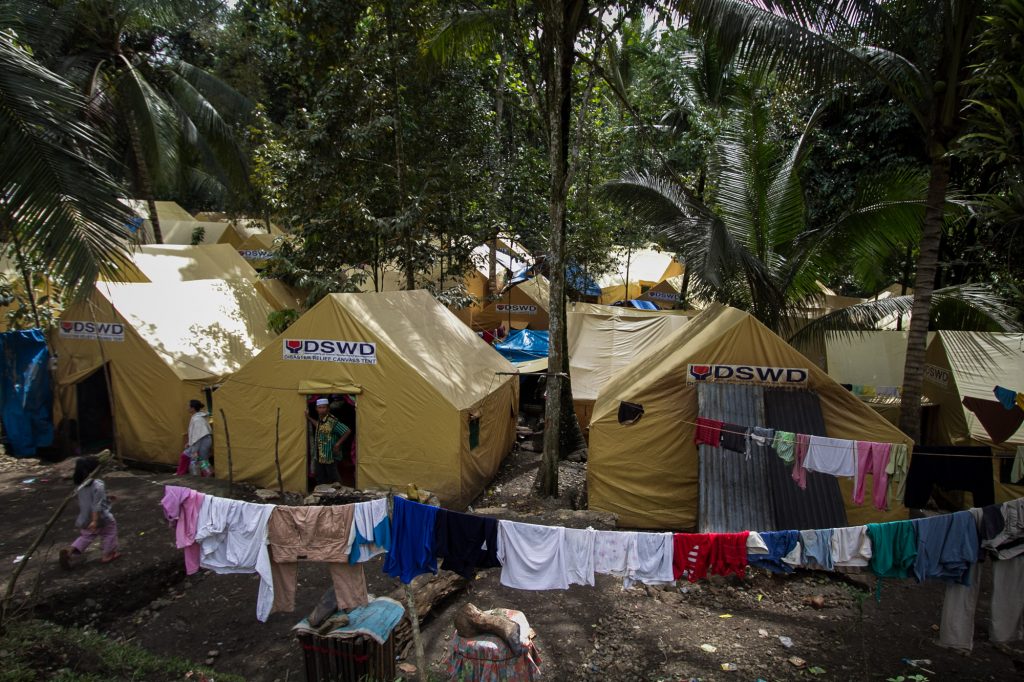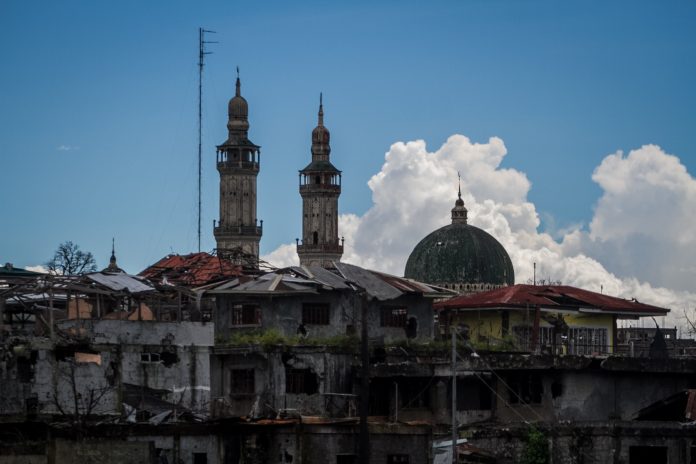Failure to address the needs of the people in the southern Philippine city of Marawi, which was devastated by a five-month shooting war in 2017, can trigger the resurgence of violent extremism.
This was the warning issued by the Marawi Reconstruction Conflict Watch, an autonomous monitoring group, during the third anniversary of the liberation of Marawi on Sunday, October 18.
The group said the current situation in the city “continues to fuel despair and frustration that threaten the fragile peace” in communities.
Issues of land and property rights and reconstruction activities by the government “may worsen the existing identity-related conflict and may trigger violent flashpoints and a stringing of conflict.”
The group noted that several families remain displaced and the city is still inaccessible to people three years after the so-called liberation of Marawi from the hands of extremists.
At least 126,775 individuals from the 24 most-affected villages have not yet returned home and are still in displacement since 2017.
“It has been three years… but there is no real liberation to speak of,” read the group’s statement. “Most of us have not been allowed to return to our homes and rebuild our lives,” it added.
“The sad fact remains that progress is slow, funds are lacking, and implementation could be improved,” read the statement from the Marawi Reconstruction Conflict Watch.
“We are fractured, and restoring relationships is difficult when we cannot even meet our basic needs adequately,” it added.
Vice President Leni Robredo echoed the sentiment, saying the city has yet to reclaim any semblance of normalcy after years of liberation.
“The siege may have been lifted, but the Marawi of today reminds us that violent extremism remains among the biggest threats to society,” she said.
“Liberation entails much more than silencing the gunfire,” added the vice president in a statement.

The coronavirus pandemic has also worsened the condition of displaced families living in shelters with poor sanitation, putting them in constant risk of infection.
At the end of September, the province of Lanao del Sur posted a total of 697 COVID-19 cases, 354 of which are from Marawi.
“The impact of the COVID-19 pandemic adds another layer to our hardship and suffering and reinforces existing vulnerabilities, threats, and risks,” read the statement from the watchdog.
It also noted that the government has only released 22.2 billion pesos (US$457 million), barely half of the 60.5 billion pesos (US$1.2 billion) total funding requirement.
“The dismal amount on top of issues on disbursement and absorptive capacity in the past paint a bleak picture for us all,” they said.
“Three years have passed and it has become clearer that we have not been truly liberated,” added the group.
Eduardo del Rosario, chairman of Task Force Bangon Marawi, meanwhile, vowed that rehabilitations will be completed by December 2021.
He explained that the rehabilitation has two major components – 30 percent infrastructure development and 70 percent non-infrastructure intervention.
“Infrastructure development is basically about building horizontal and vertical projects… We cannot make Marawi rise again only through vertical infrastructure as it won’t serve the purpose,” he said, explaining that non-infrastructure intervention refers to social services, education, health, and everything that cannot be quantified physically.
On May 23, 2017, a local terror group, which claimed to have links with the so-called Islamic State, tried to occupy Marawi City.
President Rodrigo Duterte placed the entire island of Mindanao under martial law, and on October 17, 2017, the president declared the city liberated.
More than 500,000 individuals were affected by the armed conflict.
Erwin Mascariñas and Mark Saludes contributed to this report









